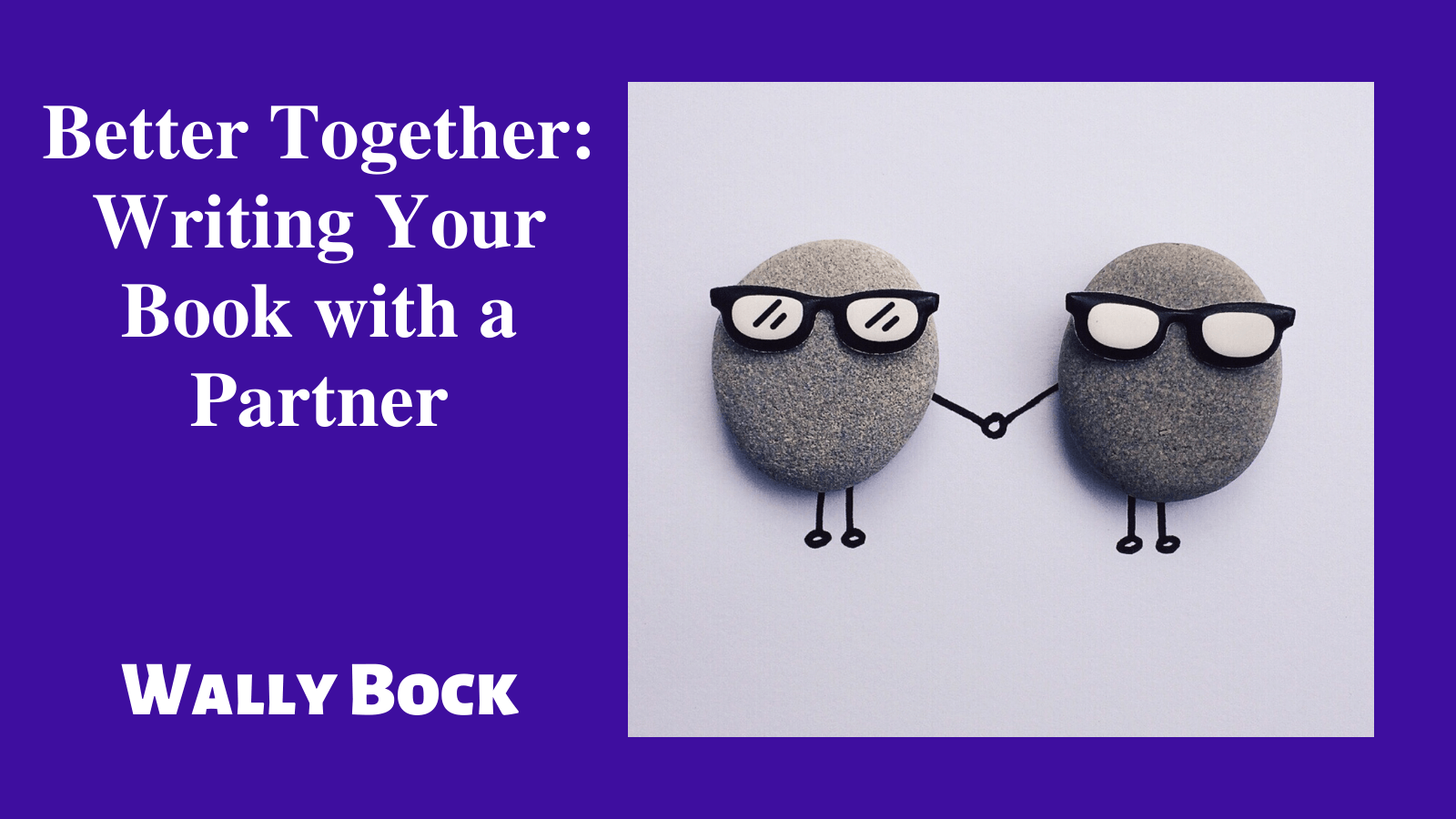The internet was new then. Some people thought I was an expert because I was just a little way in front of them learning about this new technological marvel. That’s why Jeff Senne called me.
I knew Jeff from the National Speakers Association. He worked mostly with financial organizations. He wanted to know a book that he could recommend to his clients to help them understand the implications of the net.
I told him that I couldn’t think of one. By the end of our conversation that day, we agreed that we would write the book we wanted to recommend. We would do it together. The result was Cyberpower for Business which came out in 1996. Inc. magazine called it, “a book every CEO should own.”
Partnering with another person to write a book was a new thing for me. I’d written several books, but I did them all by myself. Writing Cyberpower for Business introduced me to the joys of working with a writing partner.
Lots of great business books have been written by partners. Dan Sullivan and Benjamin Hardy wrote Who Not How. Bob Sutton and “Huggy” Rao wrote Scaling Up Excellence. Karin Hurt and David Dye wrote Winning Well and then Courageous Cultures. Today I’m a ghostwriter and book writing coach. I work with my clients as a writing partner and a spirit guide to the book writing and publishing world.
Why team up?
The basic reason to team up is that two heads are better than one. With two of you working on the project you can get the synergy of collaboration. You sharpen your ideas against the ideas of your partner.
When you have a writing partner, you combine knowledge, experience, and skillsets. My clients benefit from what I know about the book writing craft, and also from the knowledge I picked up working with people in dozens of industries.
When you have a partner, you can split the work. No matter how you split the other work, one of you should like to write.
When you write by yourself, it’s easy to become lonely and wrapped up in your own thoughts. When you have a writing partner, he or she becomes your “best friend at work.”
Working with a writing partner means that you’re accountable for getting your part of the work done. That’s especially helpful when outside forces disrupt your writing rhythms or when you hit a dry spell.
What makes a good team?
Working with other writers and partnering with clients has given me some ideas about what makes a good writing team. Obviously, every team is unique. But they still have many things in common.
Good writing teams have complementary skills. I was the one on our team that liked struggling with writing problems. Jeff had a gift for identifying the key points. By the end of our projects, I nicknamed him, “Mr. Bullet Point.”
You and your partner should have similar work ethics. You should have the same attitude toward deadlines. Otherwise, you could face lots of internal strife as one partner violates the closely held beliefs of the other partner.
You and your partner should both be good teammates. That means pitching in to get the work done and picking up the slack when your partner has an emergency. There will be emergencies.
You also need a good process. For most teams, that means passing writing back and forth. Jeff and I talked through what we needed for a chapter. When we had the materials, we’d talk through how the chapter should look. Then, one of us wrote the chapter and sent it to the other. After a little review, we got together to discuss changes. Today, technology makes that easier.
Your process needs time to develop. Jeff and I adjusted things as we went along. Once it jelled, we stuck with it.
Writing with a partner can be more productive and more fun than working by herself. To make partnering work, you need a compatible partner and an effective process.
Takeaways
Writing with a partner can be more productive and more fun than writing alone.
Two heads are better than one.
You split the work.
Your partner holds you accountable and vice versa.
You need a good work process.
You need a compatible partner.
